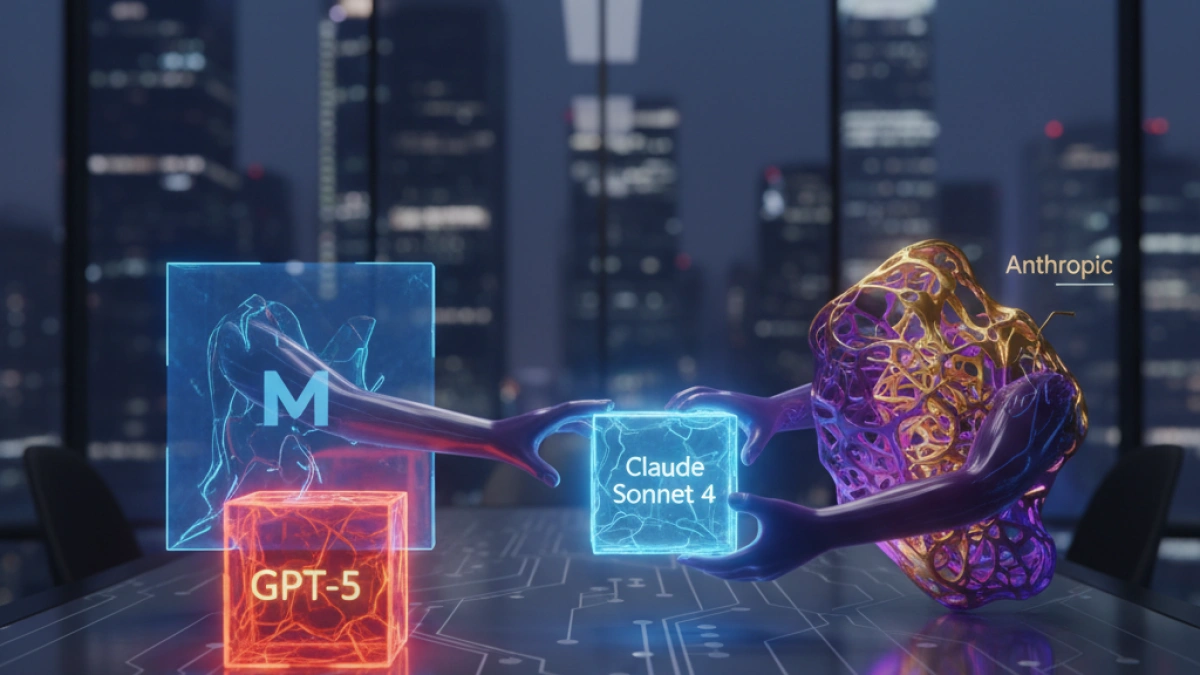Microsoft prefers Claude Sonnet 4 from Anthropic over GPT-5 for coding


Microsoft has made a strategic decision that marks a significant shift in its approach to artificial intelligence applied to coding. In a recent report, it was revealed that the company is updating its Visual Studio Code editor with an automatic AI model selector that prioritizes Anthropic's Claude Sonnet 4 model over OpenAI's GPT-5 for users of the GitHub Copilot paid service. This move suggests that Microsoft is favoring Anthropic's AI solutions for development and coding tasks, despite its substantial $13 billion investment in OpenAI.
A Shift Towards Anthropic Models
Before the release of GPT-5, Microsoft had already communicated to developers that its recommended model for GitHub Copilot was Claude Sonnet 4. Julia Liuson, head of the company's developer division, emphasized in an internal email sent in June that based on internal testing, Claude Sonnet 4 is the preferred option. This preference has persisted over time, as noted in an article by The Verge.
Training of Internal Models
In addition to its partnership with Anthropic, The Verge report also mentions that Microsoft is making "significant investments" in training its own AI models. In a recent meeting with employees, Mustafa Suleyman, head of Microsoft AI, revealed that the MAI-1-preview model was trained on 15,000 H100s, a number he considers "a small part in the grand scheme of things." This indicates that Microsoft has much larger ambitions for developing its own artificial intelligence.
Impact on Other Microsoft Products
The strategy of prioritizing Claude Sonnet 4 also extends to other products within the Microsoft ecosystem. According to a report from The Information, the Microsoft 365 Copilot will use "Anthropic models in part," as some of these have outperformed the OpenAI model in applications such as Excel and PowerPoint. This change in focus on utilizing technology from different providers reflects Microsoft's adaptability to the performance outcomes of these tools.
Microsoft’s Relationship with OpenAI
This development comes at a time when Microsoft and OpenAI recently announced a new agreement that could facilitate a potential initial public offering (IPO) for OpenAI. Despite the significant investment relationship Microsoft has with OpenAI, which could be considered one of the largest bets in tech history, the modification in its strategy reflects a response to competition in the AI sector.
Microsoft initially invested $1 billion in OpenAI in 2019 and, in 2023, made an additional investment of several billion, which places the total value of its stake in the company at approximately $150 billion, according to some analyses. These financial moves could translate into significant returns for Microsoft as OpenAI continues to evolve and grow.
Conclusion
Microsoft's approach to the adoption and development of artificial intelligence models continues to evolve, highlighting its preference for Anthropic's Claude Sonnet 4 over OpenAI's GPT-5 for coding. This shift, part of a broader strategy that includes the development of internal models, underscores the company's adaptability in a rapidly transforming tech sector. The sustained investment in OpenAI remains a key piece in the story of artificial intelligence, even as Microsoft explores new alternatives that could offer better performance.
For more news and analysis on technology and trends in artificial intelligence, we invite you to explore additional content on our blog.















